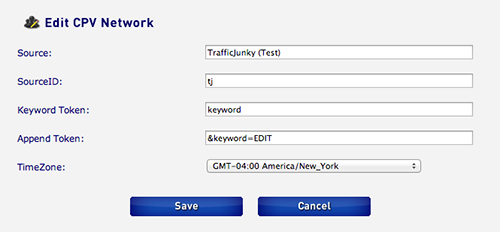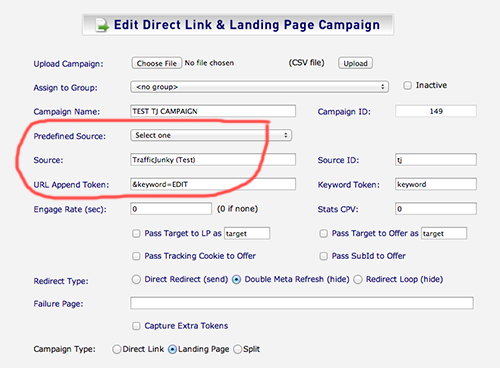
Every now and then I receive an email from a frazzled affiliate with bloodshot eyes and questions like the extract below. I’m going to answer it here for the benefit of anybody suffering similar growing pains.
“Hi Finch. I’ve been running affiliate campaigns on FB/POF for over 18 months now and I’ve made good progress in the dating niche. I still feel like there are opportunities passing me by for a lack of resources/time/etc. There are so many traffic sources I want to try and so many offers, but I’m maxed out and finding it difficult to grow the business. It feels like scaling means sacrificing profitability. Do you have any experience of hiring an apprentice to help with expanding your campaigns? Or even to help organize the management side? If so, how do you keep them loyal instead of running their own offers?”
What you are referring to sounds like the classic affiliate marketing plateau.
Most arbitrage affiliates will be familiar with the point of diminishing returns where their overall ROI starts to suffer from spreading efforts too thin. Maybe you’ve neglected the creatives in Campaign X, or saturated every last eyeball in Demographic Y. By attacking too many markets, or too many traffic sources, you can quickly find yourself working extremely hard to make very little progress.
Instead of looking to hire an assistant, your first step should be to analyse the systems you currently have in place.
We all know it’s important to track campaigns using software like CPVLab or Tracking202. You don’t make money if you don’t see where you’re losing it first. But just as crucially, you need to have a system in place that adds meaning and structure to your tracking.
For me, this starts with a good labelling system.
If I’m running multiple campaigns across Facebook, Plentyoffish, Juicy Ads, TrafficJunky and so on, each broken in to multiple countries and demographics, the first thing I want is a way to distinguish overall performance without going in and viewing every last campaign’s stats from the day before.
If you label your campaigns poorly, the CPVLab dashboard is going to resemble a clusterfuck of insignificance. Sure, you’ve got the data on your doorstep. But if you can’t remember the difference between POF DATING CANADA, FB CANADIANS, and CAN MEN 35+, how are you going to make fast, efficient decisions that enable you to manage multiple campaigns?
Most affiliates are happy to track individual campaign performance. Yep, of course they are. They know the importance of data. But tracking data is one thing, managing it is another. You must have a good consistent labelling system to avoid getting your titties in a twist. And more importantly, so that you are motivated to actually use the data.
What’s the point in having CPVLab or Tracking202 if you can’t use them to get a meaningful status update in the morning? You want an overview presented on a plate; one that makes sense to you.
To stay organized, I like to group my campaigns by traffic source in CPVLab. I will then label using this system:
[Country] [Gender] [Age Bracket] [Keyword] [Optional Identifier]
For example, I might have a list of campaigns like this:
- FR-M-3045-SingleParents
- UK-F-2530-BlackDating
- UK-F-2530-BlackDating-002
- US-M-4050-GolfDemo
For traffic sources like Juicy Ads, I’m likely to have multiple campaigns for a single placement (based on a country redirect). For these placements, I use:
[Placement] [Country] [SubID] [Optional Identifier]
- SiteX-DE-SX1
- SiteX-AT-SX1
- AnotherSite-US-AS1
- ThirdSite-IE-TS1
Note: The SubID will also be passed to the networks I work with. That way if I have lead quality issues and I’m running multiple campaigns in the same country, I can distinguish which placement is sending the bad apples. Doesn’t really matter how you track this, just as long as you do.
Now, admittedly, there are more effective ways of labelling. And you can track on a much deeper level if you so wish. But this is the system that I’m happy with. If you are not confident with your ability to oversee multiple campaigns, you will run in to the affiliate plateau. Or to put it simply, you will start launching grenades.
So, step 1 for scaling effectively: get organised. Don’t just track data. Create a system that gives you confidence in it.
The subject of when (or even if) you should hire an assistant is a tricky one.
There are generally three schools of thought:
A. Give a man a campaign and you pay his bills for a month. Teach him how to run them and he’s got his face wedged in strip club titty by Friday night. And he probably doesn’t work for you by Monday. Loyalty, what loyalty?
B. Choose the right personality with the right drive, ambition and skill set. You could have an apprentice today and a business partner tomorrow.
C. Give design work to designers. Give programming work to programmers. Delegate the grunt work; focus your own time on the high value decision making. Keep the core of the business to yourself.
I am generally quite cynical of School B, but that’s only because I’ve yet to find the right ‘apprentice’ to turn in to a business partner. I much prefer the thinking behind School C, and it can be summed up with one classic quote:
“First, make yourself a reputation for being a creative genius. Second, surround yourself with partners who are better than you. Third, leave them to go get on with it.”
– David Ogilvy
Ask yourself, what is the single most lucrative skill that an affiliate marketer can possess?
In my opinion, it’s his ability to weigh up opportunity (niches, offers, new cheap traffic sources) with reality (past performance of campaigns, basic maths) and then move quickly to strike while the iron is hot. We are not designers, programmers, or copywriters. Our money is made by plugging market loopholes.
This is something that requires a lot of time spent watching and waiting for opportunity.
My view is that you can’t pay enough attention to your primary job requirement if you are balls deep in CSS and HTML.
Our efforts should be focused on managing campaigns and finding new ones. The production work – the copywriting, banner design and etc – should be first on the chopping board when we run in to the plateau and scaling becomes a problem. Why? Because we can hire somebody to do that, but we can’t hire somebody to think like an affiliate.
Of course, for every step you take away from the grunt work, your ability to manage effectively has to grow exponentially. There’s no point in taking on top class designers if you fail to communicate with them, or fail to budget for them. There’s no point in trying to scale campaigns if the ones you already have are slapped across your tracking dashboard in a state that is nigh on impossible to manage.
Does that mean you shouldn’t take on a ‘Number Two’ as your apprentice? …Ever?
It’s a personal decision, but if I could give you one piece of advice, it would be to avoid individuals who offer to work for you because they like the sound of your career and want to ‘get involved’.
Note: ‘Get involved’ is a popular London turn of phrase that translates to “Join the party”. It betrays the intentions of those who think affiliate marketing is their one-way ticket to the Caribbean. Always think twice about partnering up with those who see your career as a piss-up in pyjamas.
I have taken on apprentices in the past who have made all the right noises about wanting to learn the ropes and get to grips with affiliate marketing. But when push came to shove, they would much rather ‘shadow’ my own campaigns than pick up the ball and create their own.
So, how do you define a good candidate for The Affiliate Apprentice?
Very few people graduate from university with a degree in affiliate marketing (and I can imagine those that do know the price of everything and the value of nothing). The best way to describe our skill set is as chameleons floating in cyberspace. We adjust to our surroundings and seize opportunities using a small but varied set of talents.
Should an apprentice be good at HTML and CSS? Should she be a modern day Peggy Olson copywriting whiz? What about somebody with experience in the industries we cling to?
It’s difficult to nail down a job description for an affiliate without matching it to several individuals you already know who would be absolutely terrible at the job. And that’s why I don’t even try.
Most successful relationships, business or otherwise, benefit from opposite forces holding them together. A little yin and yang goes a long way. I believe in those same principles for a business partnership.
If you are looking for a carbon copy of yourself, put a mirror in your office and work longer hours.
But if you want to bring an apprentice through the ranks, find one with a skill set and the personality to eventually become a valued compatible business partner – NOT a replacement for yourself. This is more likely to keep your egos apart.
Of course, remember: the only person who fully gives a shit about your business is you. Especially in an industry as soulless as affiliate marketing.
Don’t hire an apprentice to be your pawn. He’ll have no hesitation in taking your best ideas and playing you for a fool.
It’s a well known fact that affiliates don’t have many great ideas (just read this blog for confirmation). The ones we do have should be valued highly… and not found in a training manual circulating oDesk.
Happy hiring.
Got a question you want answered on the blog? Send it to me here.


![]()
![]()






Are you still using CPVlab?